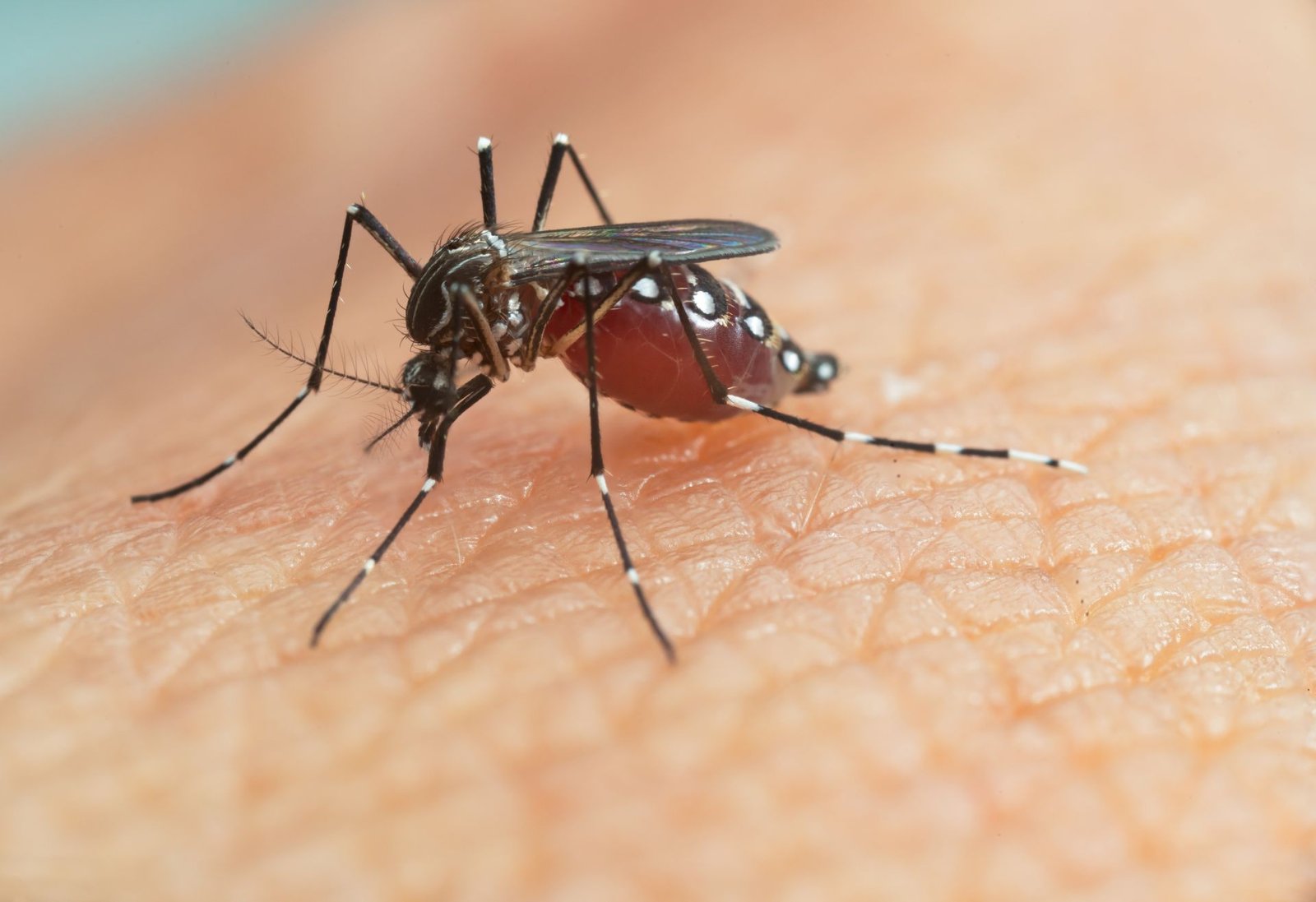Malaria is a mosquito-borne disease responsible for over 2.7 million deaths annually, according to WHO estimates.
Global Overview of Dengue Fever
Dengue fever is a rapidly spreading mosquito-borne viral illness caused by four distinct serotypes of the dengue virus (DENV-1 through DENV-4). According to the World Health Organization (WHO), it is endemic in over 100 countries and affects approximately 390 million people annually, with over 500,000 cases progressing to severe dengue (dengue hemorrhagic fever or dengue shock syndrome). Transmitted primarily by the Aedes aegypti mosquito, the disease poses serious public health challenges in tropical and subtropical regions, especially during monsoon seasons when stagnant water provides optimal breeding conditions.
Symptoms and Clinical Presentation
The disease manifests after an incubation period of 4 to 10 days, with a sudden onset of high fever (often up to 104°F/40°C), severe headache, retro-orbital pain, muscle and joint aches (“breakbone fever”), nausea, vomiting, and a characteristic skin rash. In some cases, symptoms escalate into hemorrhagic manifestations, low platelet count, and plasma leakage, potentially leading to shock or multi-organ failure.
Conventional Treatment and Its Limitations
There is no specific antiviral treatment for dengue; management typically focuses on supportive care—fluid replacement, antipyretics, and monitoring for warning signs of severe disease. However, due to the limitations and side effects of conventional medicine (e.g., NSAIDs increasing bleeding risk), many practitioners and patients turn to complementary approaches, including homeopathy and nutritional support.
Homeopathic Management of Dengue
Homeopathy provides individualized and holistic options for dengue, emphasizing immune modulation, symptom relief, and prevention of complications. Some of the key remedies used include:
Eupatorium perfoliatum – Ideal in cases with intense bone-breaking pain, backaches, and chills followed by fever. The patient craves cold drinks and feels worse from motion.
Gelsemium – Best suited for the initial stage of dengue, marked by weakness, drowsiness, trembling, and chills running up and down the spine.
Bryonia alba – Used when joint pains are aggravated by motion, accompanied by dry mucous membranes and thirst for large quantities of water.
China officinalis (Cinchona) – Useful in post-dengue recovery when there is marked weakness due to fluid loss and low platelet counts.
Crotalus horridus – Indicated in severe hemorrhagic forms, especially when there is bleeding from mucosal surfaces, purpura, and hepatic involvement.
Nutritional Support and Platelet Boosting Foods
Proper nutrition plays a vital role in dengue management, aiding recovery and immune function. Certain foods and nutrients can help support platelet regeneration and reduce inflammation:
Papaya Leaf Extract: Clinically shown to boost platelet counts by enhancing bone marrow function.
Pomegranate: Rich in iron and antioxidants, it aids in improving hemoglobin and combating fatigue.
Giloy (Tinospora cordifolia): An ayurvedic herb known for immunomodulatory effects and antipyretic properties.
Vitamin C & Zinc: Support the immune system and enhance the body’s resistance to infections.
Omega-3 Fatty Acids: Reduce inflammatory cytokines and support cardiovascular health.
Fluids & Electrolytes: Coconut water, herbal teas, and clear broths help prevent dehydration and maintain electrolyte balance.
Preventive Measures and Public Awareness
Dengue prevention relies heavily on mosquito control and protection. Using insect repellents, wearing long-sleeved clothing, using mosquito nets, and eliminating stagnant water around living areas are essential. Homeopathic prophylactics like Eupatorium perf. 200C or Dengue Nosode are sometimes recommended in high-risk areas, although research in this area remains limited.
Conclusion: An Integrated Approach to Dengue Management
In conclusion, integrating conventional supportive care with holistic systems like homeopathy and nutrition can offer a balanced and effective approach to dengue management. Empowering communities with awareness, hygiene, and early intervention is critical in reducing the disease burden.





